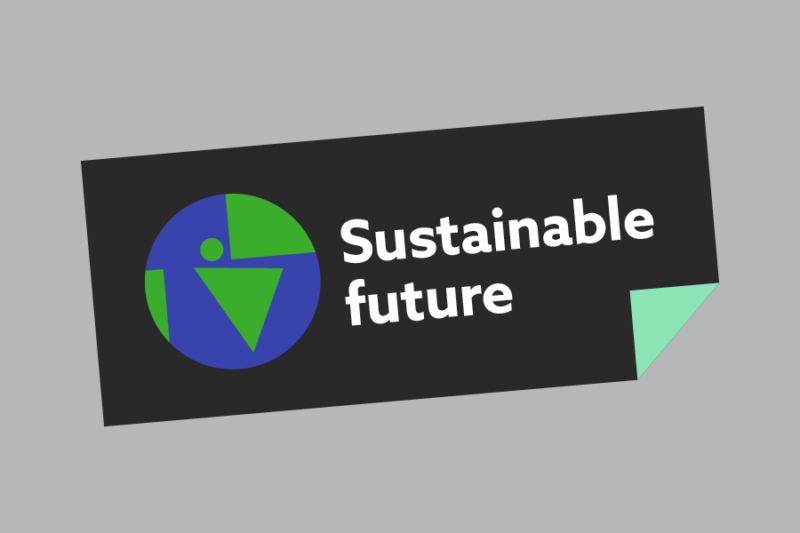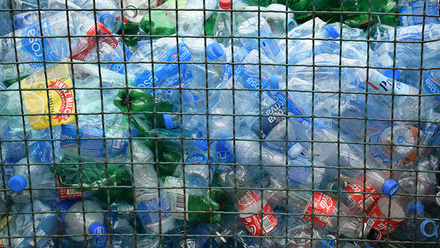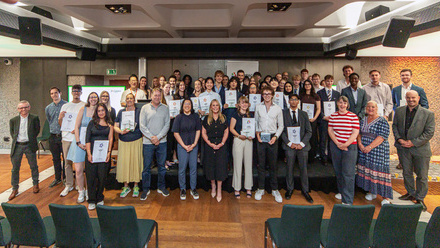Net gains with net-zero
IOM3 Policy Research Fellow, Rachel Stonehouse, presents the Institute’s response to an independent review of the UK Government’s Net Zero Strategy.

Chaired by Chris Skidmore MP, an independent review of the UK Government’s approach to delivering net-zero was launched in September 2022.
IOM3 submitted a response to the four-week call for evidence, informed by our Technical Community Leadership Teams (TCLTs). The TCLTs underpin the Institute’s policy activity with sound knowledge and insightful experience, specialising in different areas across the materials, minerals and mining professions.
The call for evidence raised a range of questions, including, how net-zero enables economic growth, the challenges and opportunities for decarbonisation focusing on measures that are pro-growth, and what more government could do to support the transition.
How does net-zero enable economic growth?
The transition to net-zero is essential for UK prosperity, productivity and competitiveness, and is an opportunity to drive more resource-efficient, resilient and inclusive growth.
The transition will be enabled through the development of technologies and their supply chains, including electric transport, green hydrogen and renewable technologies. It creates opportunities for new industries and new businesses, such as next-generation lithium-ion batteries, fuel cells, and light-weight and sustainable materials.
New job growth will be seen across value chains and areas of the economy – from construction and manufacturing to transportation and repair.
This includes roles commonly recognised as ‘green’, as well as many other jobs that play an integral role in the transition. Examples range from mining and mineral processing roles – vital to ensuring a supply of critical minerals for green technologies – to cross-cutting professions such as drivers, software and finance.
Organisations are recognising that demonstrating a commitment to achieving net-zero, including their supply chains, can help to win work and generate business.
And as competition grows for skilled and qualified professionals, companies need to ensure their corporate responsibilities meet the expectations of prospective employees to attract the best talent. For many individuals, and particularly the younger generation, this increasingly includes a greater focus on sustainability and having a positive impact on society.
The UK has a highly skilled workforce, including those redeployed from the fossil fuel industry. This, in combination with encouragement for capital to be deployed from the large UK financial base, means both domestic and foreign direct investment can be focused to encourage start-ups, small- and medium-sized enterprises, or new divisions of established firms driving additional economic growth.
What are the challenges and opportunities, and what more could government do?
Achieving net-zero will require strong leadership and strategic choices. It needs collaboration across government and across sectors with a joined-up approach and co-ordinated systems.
For example, the foundation industries are vitally important in the UK, contribute significantly to the economy, and play an important role in supporting jobs and local communities across the UK.
There is also the opportunity to demonstrate international leadership, but due to investment cycles, if key decisions aren’t taken and implemented urgently, UK production is at risk.
Clarity of direction is needed from government, including on wider systems changes, to give industry confidence to make the significant investments necessary to change the technology used.
We need a more strategic approach to materials in the UK
It is well documented that materials and minerals are essential for the transition to a low-carbon society, yet their role and value is continuously under-recognised.
Examples of what will be needed include: lithium, graphite and cobalt for electric batteries; rare-earth elements for the magnets used in wind turbines; copper and aluminium for electrical wiring and transmission; and steel and concrete for wind turbine towers.
Estimates suggest that to have enough of these materials to meet our climate targets by 2050, demand will quadruple by 2040. For lithium alone, the UK is predicted to need an additional 70,000t by 2035 – an increase of 84% from the forecast 2025 levels.
Resilience for the Future: The UK’s critical minerals strategy sets out a welcome and much-needed approach to sustainable critical minerals sourcing, which must now be translated through to implementation and delivery.
A wider cross-government consideration of materials and resources is still needed. The extraction and conversion of materials to goods and services underpins the transition, our economy and our society, and needs to be considered holistically if the UK is going to remain competitive.
The transition doesn’t rely on individual minerals or elements, but on combinations processed into engineered materials – often through multiple steps – for the unique properties they bestow. This interconnected nature, and the vital and wide-ranging role of materials in the transition – from developing clean energy technologies, to composites for lighter vehicles, and packaging to avoid food waste – requires a more strategic and joined-up approach for sustainable management and a resilient supply.
Carbon-fibre recycling is an example of why a cross-sector approach is needed, as opposed to the current sector-specific stance. Recycling continuous fibres from aerospace sources produces short fibres more suitable for use in automotive applications. Technologies exist but the market requires encouragement to establish the supply chain, using recycled products from one sector as feedstock for another.
Resource efficiency and the circular economy
Resource efficiency offers substantial opportunities for cost-effective decarbonisation, yet has historically been overlooked in climate policy.
There are wide-ranging benefits resulting from better valuing and managing our resources – from reducing emissions, improving security of supply and building resilience to price volatility, to supporting jobs, and reducing waste and pressure
on the environment.
A significant benefit of action on resource efficiency is that there are measures that can be implemented quickly.
In addition, reducing the demand for primary materials can help lower the overall financial and environmental costs associated with decarbonising industrial production, and increase the speed of the transition.
Embedding circular economy principles keeps materials, components and products in use, at high quality for as long as possible. While recycling at the end of life is important, an efficient circular economy drives better design and new business models for durability, longevity and reuse. It would also embed smarter use of materials in the first place, through resource efficiency and well-informed material selection.
The current macroeconomic model, however, does not promote consumption reduction or reward waste prevention sufficiently to drive the behaviour alone, so government intervention is essential.
A suite of complementary measures will be required, such as:
- Influencing consumer behaviour.
- Guidance and information for designers about the potential downstream impacts of their decisions.
- Design principles and standards that support better resource productivity, including rapid innovation and testing.
- Procurement as an overarching driver.
- Accurate and transparent information, including material flow data to support secondary markets.
- Support for alternative business models such as service-based or lease systems.
- Addressing the skills gap.
Cross-government and cross-sectoral systems thinking should be applied to policymaking to ensure interventions embed resource efficiency in a strategic and systemic way, moving beyond household waste and end-of-pipe action.
Energy efficiency
Energy efficiency should be a cornerstone of government policy but is continuously overlooked and undervalued, despite its potential to reduce energy use – and therefore carbon emissions and expenditure – for households and businesses alike.
The use of more efficient technologies and/or processes to reduce the amount of energy used per unit output is key.
The UK currently wastes more than half of the energy produced because of huge inefficiencies in the transmission and distribution network, and at the point of use. For instance, of the 29 million homes in the UK, at least 19 million need to be made more climate resilient, so they require much less energy for the same comfort.
Refurbishment of buildings to reduce energy demand is key as 40% of emissions occur during their operation. As we focus on the energy transition, it is important to remember that the cleanest energy is the energy never used.
Addressing the skills gaps
There are significant and growing skills gaps in the UK in various materials, minerals and mining sectors that will play vital roles in the transition to net-zero. While the skills base is of high quality, there are significant issues with quantity and diversity.
For example:
- There is growing demand in the packaging sector for skills to implement the Extended Producer Responsibility policy reforms.
- The construction sector is facing growing pressures and shortages, such as for retrofit designers.
- The mining and mineral processing sectors are facing declining provision of higher education and an ageing workforce.
The speed that the transition must happen requires organisations to move fast, and to rapidly grow new areas of their business. Recruitment must correspondingly move quickly, and the availability of specialist skills in science and engineering to fulfil this need is a challenge. Adding to this, some sectors are facing disruptions, or steep reskilling and recruitment forecasts.
As the demand for skills and talent is increasing, the supply is failing to keep up. There is a recognised skills and knowledge continuity gap between an older generation of qualified and competent persons about to retire, and replenishment of those skills from too small a number of new people coming through the system, for example in mining engineering.
The UK Critical Minerals Strategy recognises the risks facing the skills base and commits to training the next-generation of miners, geologists, engineers and beyond. The steps outlined must now be translated through to action, including working with industry and careers services across the UK to modernise perceptions of mining; review the UK’s skills, education and training along the critical minerals value chain; and to define a critical minerals skills blueprint, recognising the full breadth of skills needed.
A wider skills strategy should also be developed to enable planning for current and future needs with complementary timing of skills and job creation. It should address the recruitment and retention of both the incoming and current workforce.
As skills development can take time, this strategy must be sustained, consistent and long-term, and include a plan for increasing equality, diversity and inclusion. There is wide-ranging and substantial evidence demonstrating the benefits of a more diverse team and workforce, from increasing innovation, through non-linear novel thinking, to increased productivity, and greater effectiveness.
Changing perceptions
Materials, minerals and mining underpin the transition to a net-zero economy, yet some professions, despite playing vital roles, can be perceived as unattractive or undesirable.
Public and media discussions around materials can commonly focus on negative impacts such as emissions and material pollution. A dialogue shift is required to ensure materials are properly valued and recognised for their far-reaching benefits and underpinning role in the transition, our society and the economy.
Materials science and engineering, for example, can be perceived as an unattractive career choice, negatively impacting on recruitment and retention in both industry and academia.
To meet the demand for metals and minerals required for the transition, while improving how we mine, well-trained individuals with sound knowledge of environmental, social and governance (ESG) issues will be needed. Vilifying the mining industry is therefore inconsistent with a desire to increase sustainability and address the climate crisis.
Plastics too have negative connotations – that all plastics are bad – yet they serve vital purposes in modern life and contribute to the transition to net-zero.
Well-designed packaging plays an essential role in protecting products, reducing waste and, in turn, costs, carbon and other resources. It also provides a way of conveying information and can help consumers make informed choices. However, the misuse of packaging and its poor end-of-life handling and subsequent demonisation – particularly of plastic – can have a negative impact on the attractiveness of the sector, as well as distorting decision-making about which is the right material, in the right place, at the right time.
Modernising public perceptions and access to more accurate information will play an important role in encouraging participation in these sectors and attracting new and diverse talent.
More open, regular and collaborative dialogue across the UK public, government and media is required about the vital role of materials, minerals and mining in the transition to net-zero and all aspects of daily life. Organisations such as IOM3 can do some of this (find out more about our new partnership with Content With Purpose at materialchange.iom3.org), but supportive interventions from government are also required.







